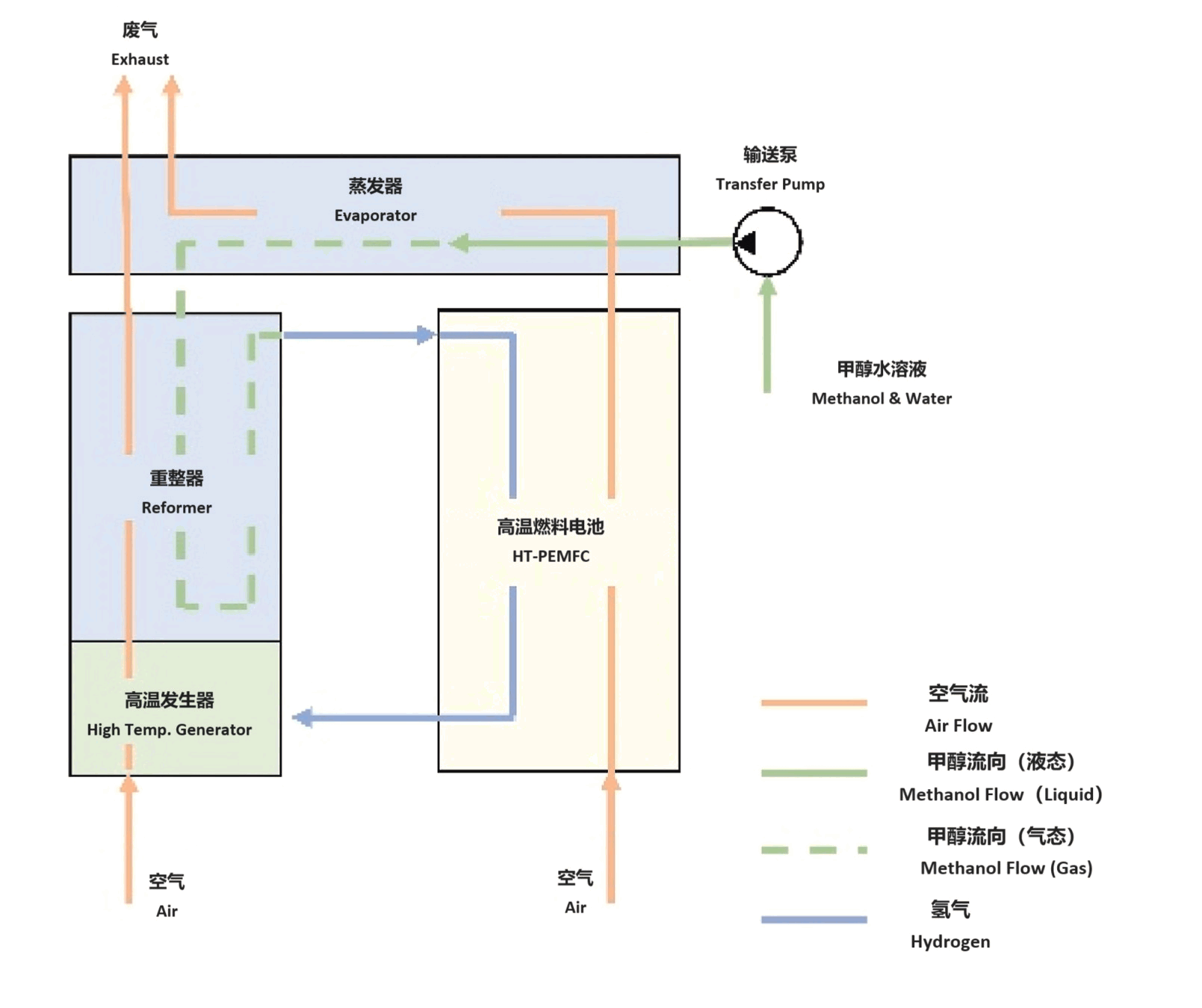High-temperature methanol fuel cells mainly generate hydrogen through high-temperature reforming of methanol, and use hydrogen and oxygen to undergo electrochemical reactions in fuel cells to generate electrical energy.
Reasons for adopting high temperatures:
A mixture of methanol and steam can generate hydrogen and carbon dioxide through a catalyst at a certain temperature, and a small amount of carbon monoxide is also produced. However, carbon monoxide can be adsorbed by the catalyst and cause poisoning, ultimately leading to the suspension of the reforming reaction. But under high-temperature conditions, it is not conducive to the adsorption of carbon monoxide on the catalyst surface. For example, 10 ppm - 20 ppm of carbon monoxide at room temperature can significantly reduce the performance of the catalyst. When operating at 130°C, the carbon monoxide tolerance can be as high as 1000 ppm. When operating at 150°C, it can be as high as 10,000 ppm. When the operating temperature is higher than 160°C, it can reach 30,000 ppm without a significant decrease in performance.

The working principle of high-temperature reforming methanol fuel cells is as shown in the above figure:
The high-temperature generator provides sufficient heat to keep the reformer at the operating temperature; the evaporator, where the phase change of the mixture of water and methanol from liquid to gas occurs; the reformer where the methanol reforming reaction occurs and the reformed gas produced by the reformer is used as the raw material for power generation in the fuel cell. In such a system, there is no need to remove the additional component of carbon monoxide because high-temperature methanol fuel cells have high tolerance to impurities in the reformed gas (such as carbon monoxide and unconverted methanol). In addition, unreacted hydrogen is supplied to the high-temperature generator, and the excess heat released by the high-temperature methanol fuel cell can be used in the evaporator to achieve efficient utilization of fuel and heat.
For more information about high-temperature reforming methanol fuel cell technology:
https://www.htech360.com/a/23447